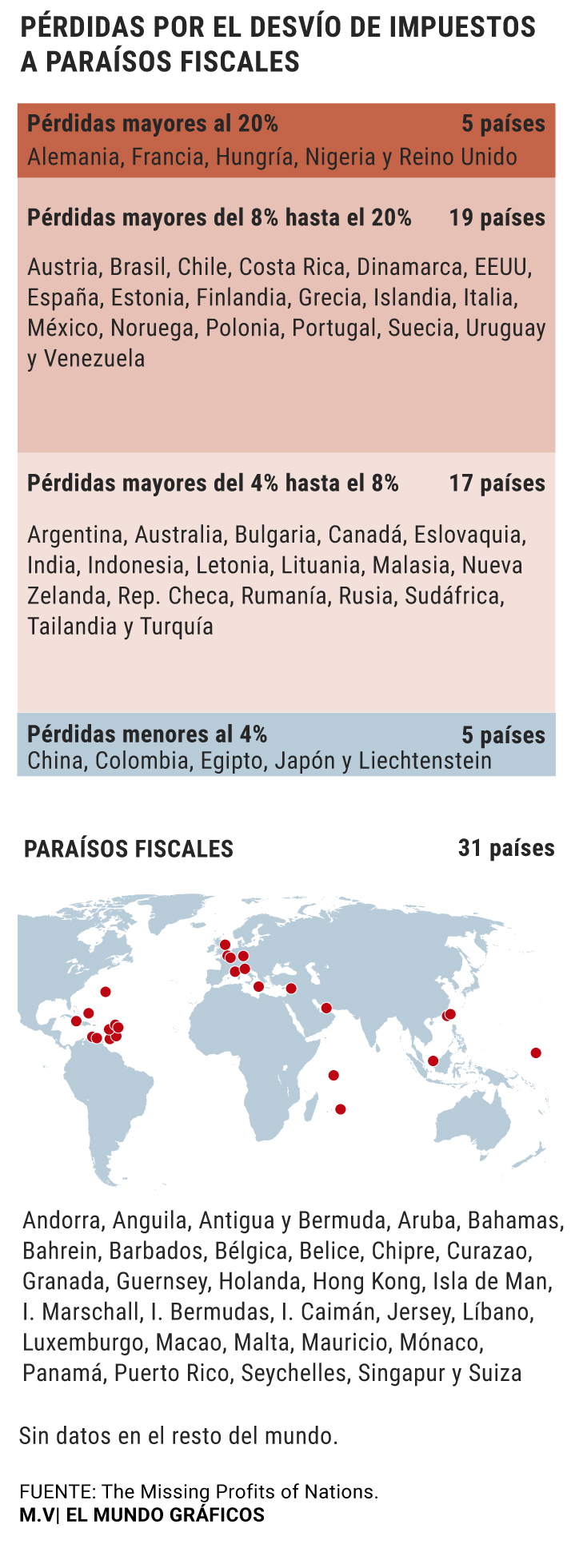- Google rate: Everyone seeks 90,000 million in taxes from internet giants
The international clamor for the low taxation assumed by the large technology companies, which during 2019 has come to tighten international relations between the United States and France, begins 2020 with a rethinking by Google about its tools to avoid taxes.
Alphabet, the parent of the world's largest online search engine, has announced that it will cease to divert its benefits from intellectual property from Ireland , a formula that serves to avoid paying taxes in the companies' country of origin, in this case States United.
The tax engineering formula developed to date is called Double Irish, Dutch sandwich ( double Irish, Dutch sandwich ) and consists of taking advantage of the tax permissiveness of these countries to minimize taxation, which also refers to tax havens such as Bermuda
In 2018, Google moved 24,500 million euros from the Netherlands to that archipelago, which exceeded 19.9 billion in 2017. However, the company faces 2020 with the announcement of the end of these practices, according to documentation sent to the Dutch Chamber of Commerce to which Reuters has had access.
"We are currently simplifying our corporate structure and we will process our intellectual property rights from the United States, not from Bermuda, " said the California company in a statement provided to EL MUNDO.
The Spanish collection for corporate tax, which in the case of Google is limited to 6.8 million euros in this country according to the data collected by this newspaper of the commercial register at the end of 2018, would not have to vary with this change of criteria, but at least there is an ethical shift in the company, which since last month has Sundar Pichai as CEO.
The tax gimmick of the online giants
The expression of double Irish refers to the system of creating two companies, one based in the European island and another in a tax haven like Bermuda, so that the benefits obtained in terms of intellectual property that should be computed in other countries ( for example Spain) they move to the Irish subsidiary, first, and then from there they are redirected to paradises such as Bermuda, where in fact the American giant has the subsidiary Google Ireland Holdings.
This modus operandi allows to avoid even the Irish corporate tax, established at a lax 12.5%. However, large companies go further, by complementing that Irish double with the so-called Dutch sandwich : a company based in the Netherlands is placed in the middle of the double and records the economic activity of the Irish society to transfer it to Bermuda or the chosen paradise, in order to reduce even more the little taxation that is pending in Ireland.
These practices are common among companies such as technology or pharmaceutical companies , among which intellectual property and patents are essential. Thus, taxation is avoided for the benefits in the countries where they are generated and where the economic activity takes place. Such a scenario has led to the creation of a new tax figure for digital services, known in Spain as Google rate and already active in France, where it is commonly called the GAFA rate (Google, Apple, Facebook and Amazon).
"There is evidence that the typical business structure of digital service multinationals involves a transfer of intellectual property to subsidiaries in tax havens to directly sell those services to final consumers without the need for any subsidiary outside of tax havens," collects the study The hidden wealth of nations . One of its authors, Berkeley University researcher Ludvig Wier recently explained to this newspaper that his research suggests that " US-owned firms are those that avoid paying taxes in a more aggressive manner ."
The United States has suffered as an administration the behavior of the companies originating in its country, so Donald Trump protected a tax reform in 2017 to attract the benefits and therefore the taxes to its borders, a repatriation as an alternative to Ireland with a decrease of rate for these activities up to 10.5%. That fiscal adjustment that had convinced other technology such as Apple , and Google seems to want to abide by those regulations.
The European weight on Google
Two weeks ago, Google was sanctioned for 150 million euros for abuse of dominant position in France, the country that most actively proposed a rate against the commercial activities of this company - the agreement for the PSOE and United We coalition can contemplate a tax Similary-. Currently, the OECD settles a tax that can be applied globally and not unilaterally according to each nation, as France has sponsored.
In addition, Google has starred in the three biggest sanctions in the history of the European Commission . Last March, Brussels punished him with 1,494 million euros, for "abusing his dominant position" in the online advertising market. The Commission had already awarded a penalty of 2,420 million, for dominant position of its purchasing tool and another, with a record 4,340 million, for using Google its operating system (Android) for its own benefit.
According to the criteria of The Trust Project
Know more- U.S
- Ireland
- Holland
- France
- Spain
- Donald Trump
- European Comission
- Business
Taxation The Google rate: everyone seeks 90,000 million in taxes from internet giants
Commercial war Trump hits France for the 'Google rate' and studies more tariffs against Spain
InnovationThe Spanish scaleups ecosystem in 2018 ranks fifth in Europe

